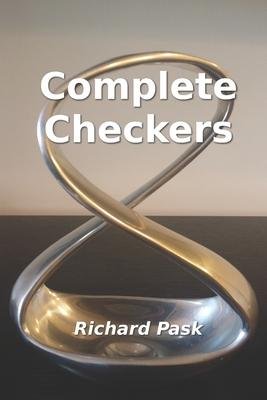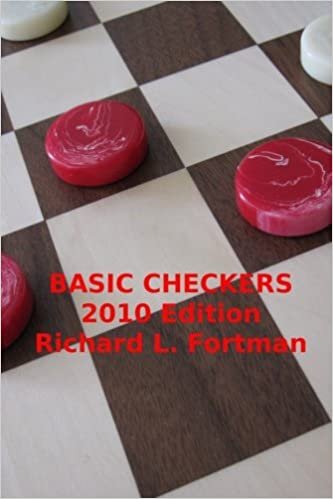My Checkers Advice by GM Richard Beckwith
About the Author
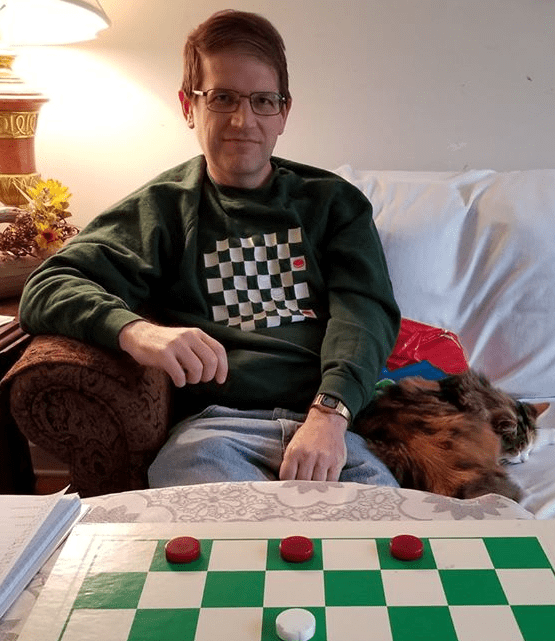
Grandmaster Richard Beckwith (b. 1969) lives in Willoughby, Ohio and works as a Ph.D. analytical chemist for Olon Ricerca Bioscience LLC. Richard was ACF National Junior Champ 1986-1990. In 2009, he won the GAYP World Qualification Tournament (Isle of Wight), but lost to Ron King in the world title match 1-2 with 21 draws in 2010. He tied with Ron King for 1st in 2011 San Remo (Italy) Open. In 2012, he won the 11-man ballot U.S. National, but lost to Alex Moiseyev in the 11-man world title match 0-4 with 9 draws. Richard later won the 2015 ACF GAYP National. He has competed in multiple International Matches against either U.K. & Ireland, Barbados, and Italy with a combined game record of 17-5 with 46 draws. In addition to being a past contributing editor to the ICHF magazine, Richard has served the American Checker Federation as National Organizer, Player’s Rep, Treasurer and trustee, and became WCDF President in 2012.
I have no secrets for overnight success, but fortunately, checkers is fun and challenging regardless of your skill level.
As for books I could recommend:
Lee’s guide is a good older opening book — Gould’s problem book too. (Lee’s Guide was my first book.)
If you’re looking for beginner’s type books, you can try something by Tom Wiswell (such as Let’s Play Checkers or Learn Checkers Fast) or Millard Hopper. Robert Pike is a modern author with a number of learning books with items for sale at Amazon. Beginner players may prefer to start with Richard Pask’s “Checkers for the Novice” as well.
Problem and theme solution are of vital importance in the game. For those problems and themes, Ben Boland’s books are good, most notably Familiar Themes, Boland’s Masterpieces, and Famous Positions. Yet they are quite rare and can be quite expensive. One might refer to Key Landings, Key Themes or Key Endings by Richard Pask as a free alternative.
For three-move openings, I like Fortman’s Basic Checkers (~40 years old).
Also, Pask’s Complete Checkers is good, newer, contains fewer mistakes and emphasizes familiar landings. But Basic Checkers has more explanations of play and breaks down why a particular route was chosen as well as presents numerous traps and pitfalls with wordy descriptions. There is also a good older work, Kear’s Encyclopedia, which presents openings in a two-move opening format. Unfortunately the complete Kear’s Encyclopedia is rather expensive to acquire at times.
The above is not meant to be an exhaustive list of quality checker books, as there are many other checker books of value that I won’t go into here.
You can look for checker books in checker magazine classifieds, usacheckers.com store, Ebay, etc, or try posting a request on a checker bulletin board at forum on usacheckers.com.
Also, public libraries (and some bookstores) carry a few checker books.
For study of problems…
For a beginner/intermediate player, I would start with all 3 kings vs 2 kings positions, then 1st, 2nd, 3rd and 4th positions. For more advanced players, throw in tougher positions like Bowen’s Twins, Strickland’s positions, Petterson’s Drawbridge, etc.
Practice games are usually good ways to discover the nuances of the game for yourself. I usually record my tournament and practice games (although this might be distracting for some) so I can review games later (with a book like Basic Checkers handy) and hopefully not repeat mistakes.
With today’s technology, completed games also can be analyzed by Kingsrow software to point out where suspect moves were made along with suggested alternative. Some players, who haven’t memorized the numbered squares and don’t have a numbered practice checkerboard, keep a numbered diagram nearby for reference. When I meet people face to face for practice, I take my time to look over the position (to simulate tournament conditions).

Sometimes before moving, I like to double check to make sure I’m not walking into an embarrassing shot or trap. One thing I have learned playing other master players is how they never give up trying to find a way to win. Even in a late midgame when game appears to be a quiet draw, master players continue to look for any edge – a trap to set, or a couple single pieces they can tie up — to try and get a good ending.
Even better is if you live near a strong player who is willing to serve as a mentor. After I moved to Ohio several years ago, I have gained much skill by having a top player such as Louis Cowie to practice with, as he is full of tricks (without aid of a computer).
My following comments are somewhat more advanced, and apply more to 3-movestyle of play.
Do I recommend memorizing moves and becoming a book player? Unless you really enjoy memorizing games, I would say “no” for a beginner/intermediate player.
At this stage, it’s more important to understand the “why’s” behind published play to develop your crossboard skills. Book knowledge isn’t as useful if you play predominantly B players, who don’t stay on book lines. Also, I have occasionally gotten into trouble with memorization of play. For example, I play a move in a game that I think is correct from memory, only later to discover that I have confused position with something similar.
Lastly, even if you know a book line on a given opening, often your opponent will not stay on the line you want (perhaps intentionally). So, you still need good crossboard skills, which comes with practice.
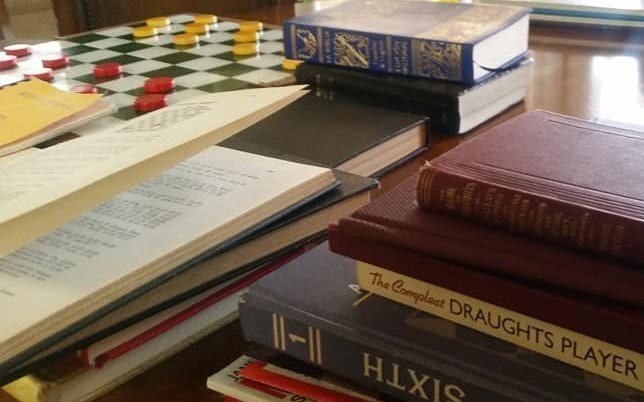
Once you reach status as Master or even Major player, book knowledge will become very useful. For me, it happened naturally that I reached a point I wanted to start studying a book like Basic Checkers.
If book knowledge isn’t your thing – that’s OK too. Some people, like Elbert Lowder, preferred going into a crossboard battle (although Elbert still knew a lot of book too, so probably better to have some book knowledge.) Book knowledge should be very useful if you are paired against a player of minor to mid-major caliber, as their book knowledge is often limited (except for maybe some favorite GAYP lines). Against master players, however, the common book lines are more likely to be known and may permit easy draws.
Those players who take it to the next level tend to play either offbeat lines or their own prepared play (cooks!) to coax their opponent into a crossboard loss. Again, there is room for different styles of play here in terms of aggressiveness, originality, risk-reward, etc.
How have I studied for tournaments? I will share my approach. This is not to say it is the best approach, but it has its points. My strong area is in my openings. When I first started playing in tournaments in mid to late 1980s (right after Basic Checkers came out), I went through all openings and tried to understand what is white’s best reply at the fourth move of the game. (There may be multiple good answers for some openings). In doing so, I observed patterns, such as key formations, key squares, what pieces are safer to develop first, etc. (Unfortunately, there will always be certain positions in checkers that are exceptions to the general rules, but you have to start somewhere.) Over the years, my knowledge of the openings began to sink in more and more, and pretty soon I was knowledgeable of the 5th, 6th, and 7th moves, etc. Now, I am well-versed in a few main lines of most openings. However, you still need to have good crossboard ability, midgame ability, and lastly, ability to play good endings.
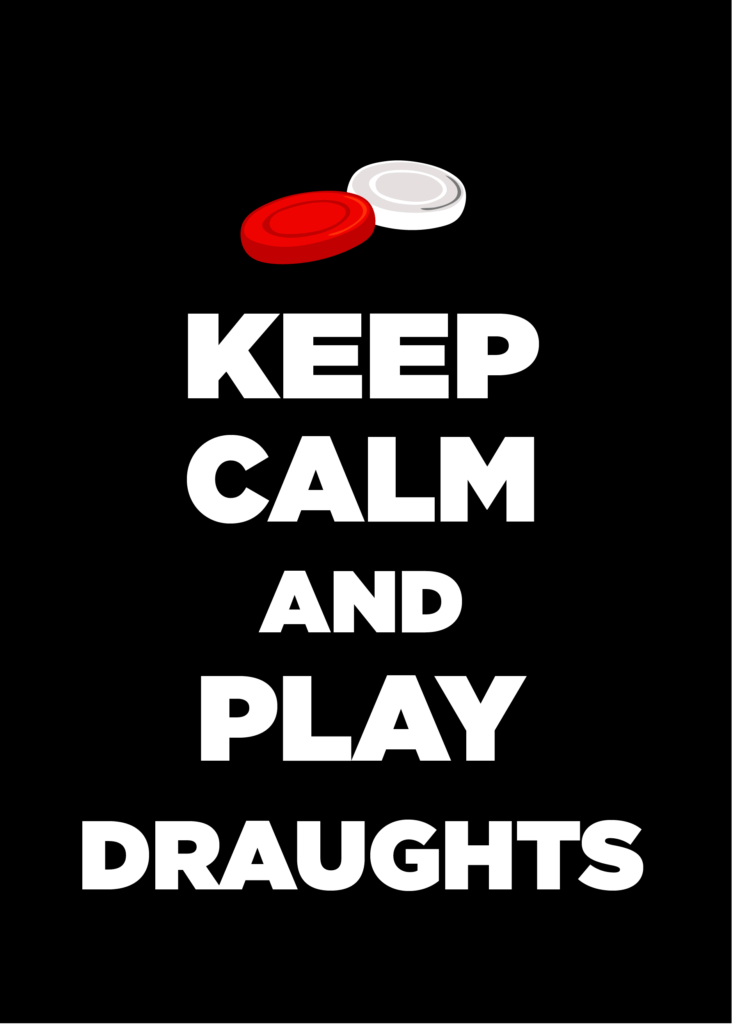
Studying one opening at a time is another valid approach, and offers more depth in knowledge of the opening. This may be especially true for the real tough openings, like Skullcracker and Octopus, where knowledge of key defensive moves is particularly useful to avoid going into an early loss.
Rather than studying one opening at a time (which is a lot of work for 156 openings), I tend to play the percentages and emphasize more those midgame positions that can arise from multiple openings. Namely, the Pioneer system, Defiance, and Bristol Cross have the potential to arise from ~50 different three-move openings. So, knowledge of these mid-games will likely not go to waste.
Lastly, keep in perspective the other important things and people in your life, and don’t let checkers dominate your life (this has happened to some!) unless you really have an urge to be world champion soon. Have fun with checkers and show good sportsmanship.
